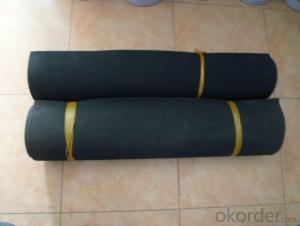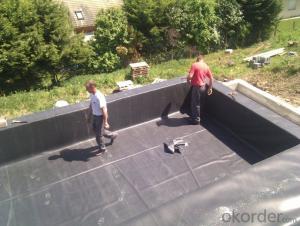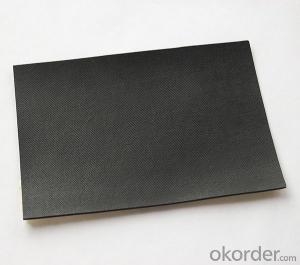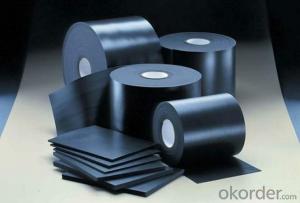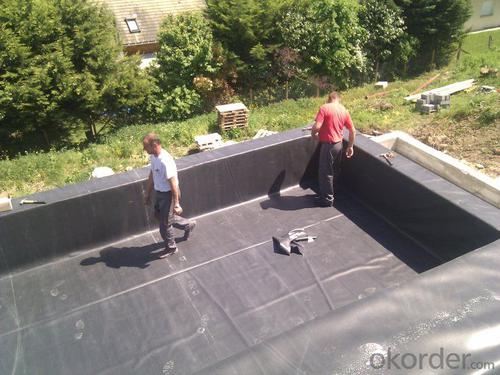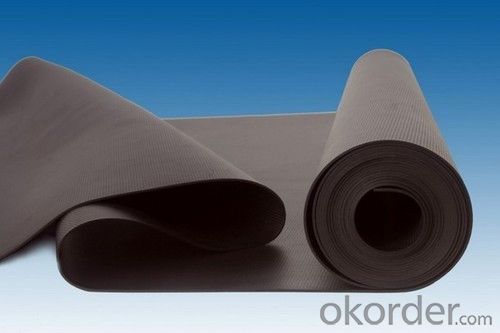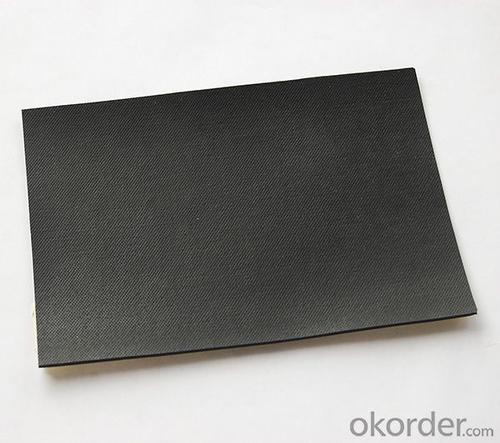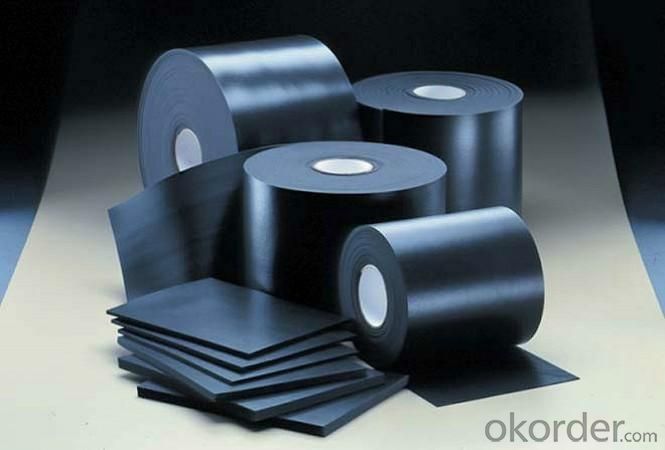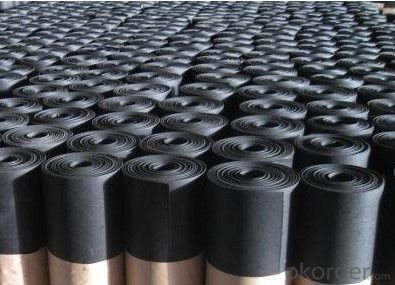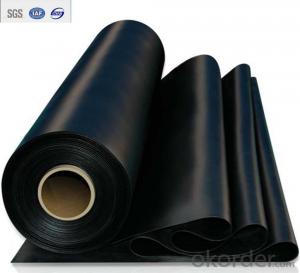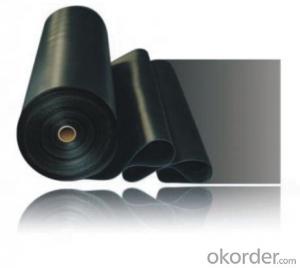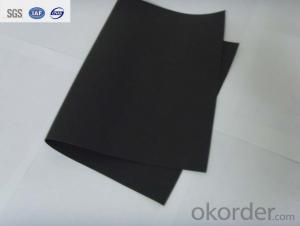EPDM Waterproof Membrane with 2.0mm for Roof Project
- Loading Port:
- Shanghai
- Payment Terms:
- TT OR LC
- Min Order Qty:
- 20000 m²
- Supply Capability:
- 5000000 m²/month
OKorder Service Pledge
OKorder Financial Service
You Might Also Like
EPDM Waterproof Membrane with 2.0mm for Roof Project
Description Of EPDM Waterproof Membrane with 2.0mm for Roof Project:
1. EPDM waterproof membrane is made from ternary ethylene-propylene rubber, which is for waterproofing of exposed and non-exposed applications.
2. EPDM waterproof membrane production adopts the world-advanced equipment of cold feeding extrusion and continuous vulcanization technology.
3. EPDM waterproof membrane is of high elasticity among high polymer waterproof materials and becomes a world-popular waterproofing material.
Main Features of EPDM Waterproof Membrane with 2.0mm for Roof Project:
1.Excellent anti aging performance ,service life up to 50 years.
2.High extension rate,high tensile strength ,small size changes at heat treatment.
3.Good plant roots penetrability resistance and can be made waterproofing layer of planting roof.
4.Special modified molecular structure ,effectively resolving the current domestic and foreign glue joint problem.
5.Good low temperature flexibility ,and good performance of adapting to ambient temperature changes.
6.Convenient application ,solid joint ,no environment pollution.
7.Chemical corrosion resistance ,can be used for special occasions.
8.Good anti-perforated.
Specifications of EPDM Waterproof Membrane with 2.0mm for Roof Project:
| Material | EPDM Rubber |
| Size | 1.2m (width)*20m (length) or customized, weldable type 2.05m or 4m width |
| Thick | 1.2mm, 1.5mm, 2.0mm |
| Type | Vulcanized & Weldable |
| Pattern | Non-reinforced (homogeneous) |
| Certificate | ISO9001/14001 |
Applications of EPDM Waterproof Membrane with 2.0mm for Roof Project:
1. Roofs, Basement, Toilet
2. Industrial and civil building waterproofing
3. Geo-synthetic liner for swimming pool, channels, irrigation system
4. Especially suit for projects with high requirements in durability, anti-corrosion and deformation
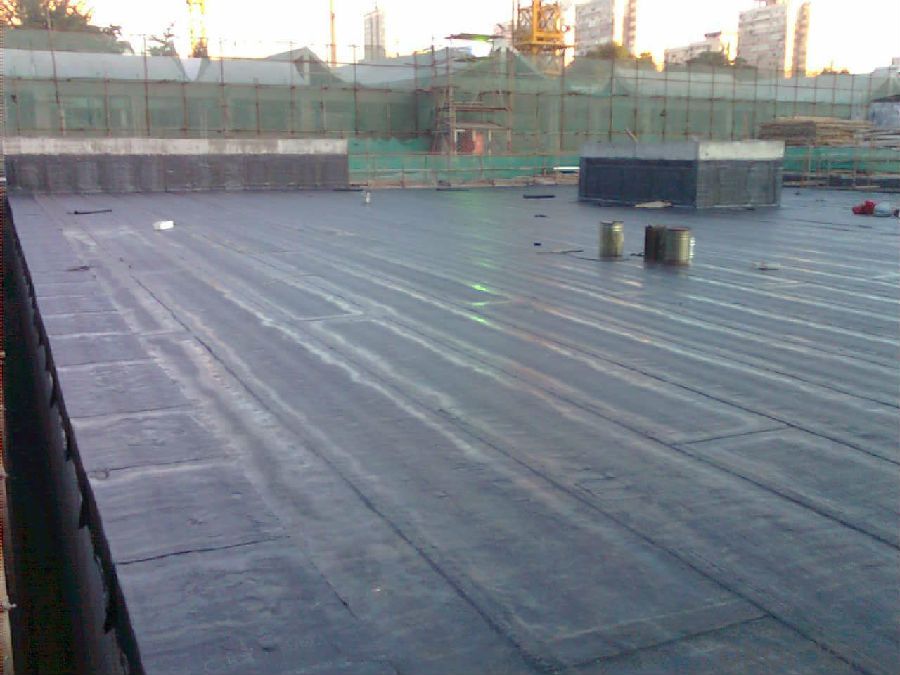
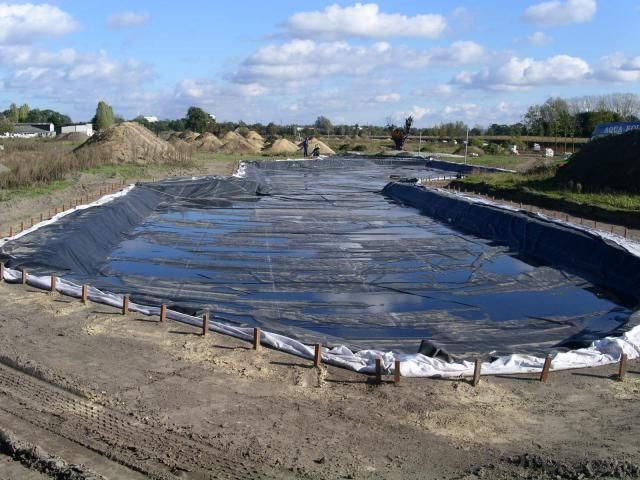
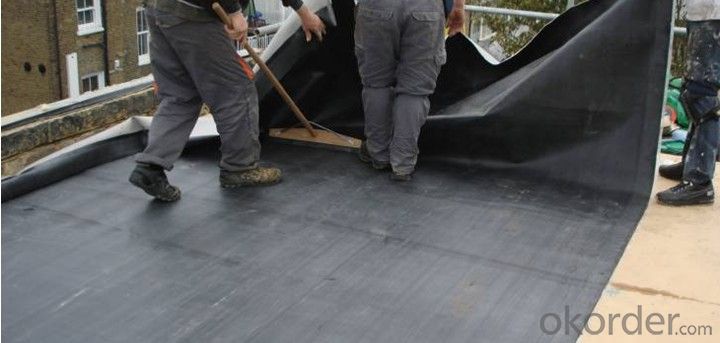
IMages of EPDM Waterproof Membrane with 2.0mm for Roof Project:
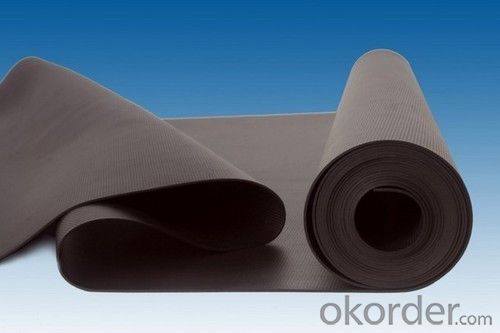
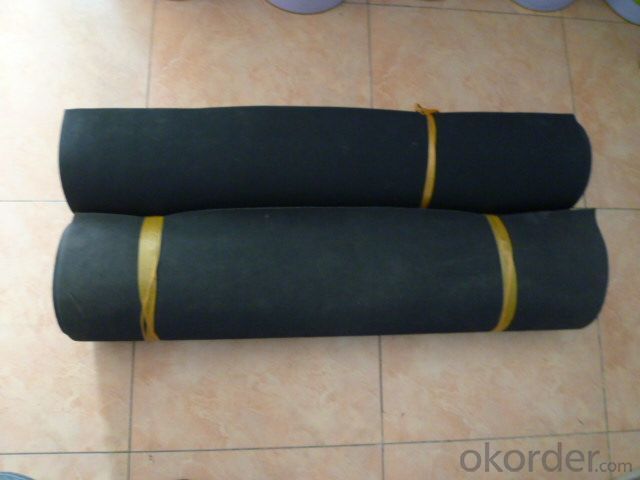
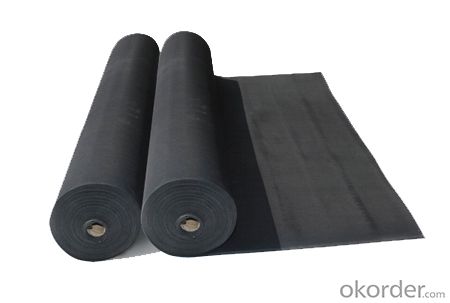
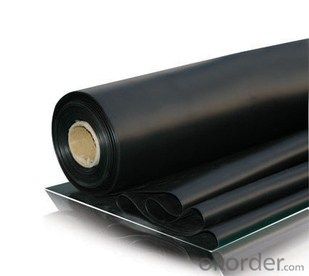
FAQ of EPDM Waterproof Membrane with 2.0mm for Roof Project:
1. What are we supplying?
We are specialized in producing Colorful Asphalt Roof Shingle, SBS/APP modified bitumen waterproof membrane, Self adhesive bitumen waterproof membrane, PVC waterproofing membrane, EPDM rubber roofing membrane, Single Component Polyurethane Waterproof Coating, and Spray Polyurea Waterproof Coating
.
2. How Many years experience do we have?
We have been exported to more than 20 countries in the past 15 years.
3. How long do we usually reply your request?
We always reply our customer within 24 hours.
- Q: Can a waterproofing membrane be used on stainless steel surfaces?
- Yes, a waterproofing membrane can be used on stainless steel surfaces. Stainless steel is a durable and non-corrosive material that is commonly used in various industries. However, it is not completely immune to water damage or corrosion, especially in harsh environments. Applying a waterproofing membrane on stainless steel surfaces can provide an additional layer of protection against moisture, preventing potential water damage, rusting, and corrosion. It is important to ensure that the waterproofing membrane is compatible with stainless steel and applied correctly to ensure proper adhesion and long-lasting protection.
- Q: Can a waterproofing membrane be used in areas with extreme weather conditions?
- Yes, a waterproofing membrane can be used in areas with extreme weather conditions. Waterproofing membranes are designed to provide protection against water intrusion and can withstand a wide range of weather conditions, including extreme heat, cold, heavy rainfall, and snow. These membranes are made from durable materials that are resistant to UV rays, temperature fluctuations, and other environmental factors. Additionally, some waterproofing membranes are specifically designed for use in areas with extreme weather conditions, offering enhanced performance and durability. It is important to choose a waterproofing membrane that is suitable for the specific weather conditions of the area to ensure long-lasting and effective protection.
- Q: Does a waterproofing membrane prevent efflorescence or mineral deposits on surfaces?
- Yes, a waterproofing membrane can help prevent efflorescence or mineral deposits on surfaces. The membrane acts as a barrier, preventing water from entering the surface and carrying dissolved minerals or salts that cause efflorescence. By keeping the surface dry, the membrane helps to minimize the formation of mineral deposits.
- Q: Can a waterproofing membrane be used on flat roofs?
- Flat roofs can indeed benefit from the use of a waterproofing membrane. This method is widely recognized as one of the most effective and commonly used techniques for achieving waterproofing on flat roofs. The membrane itself is a thin material that is carefully applied to the roof's surface in order to prevent any water from seeping through. Typically constructed from durable and flexible substances like synthetic rubber or modified bitumen, the membrane is designed to withstand harsh weather conditions and offer long-lasting protection. By installing the membrane in overlapping layers, a continuous barrier is created that effectively seals the roof, preventing any water leakage into the building. Additionally, it is worth noting that waterproofing membranes can also provide insulation and energy efficiency advantages, which further contributes to their popularity in flat roof applications.
- Q: Can a waterproofing membrane be used on different types of surfaces, such as concrete, wood, or metal?
- Yes, a waterproofing membrane can be used on different types of surfaces including concrete, wood, and metal. Waterproofing membranes are designed to provide a protective barrier against moisture and can adhere to various surfaces, ensuring effective waterproofing regardless of the material.
- Q: Can waterproofing membranes be used on concrete fountains?
- Yes, waterproofing membranes can be used on concrete fountains. Concrete fountains are often exposed to water and can be prone to leaks and moisture damage. Applying a waterproofing membrane to the concrete surface helps to create a barrier that prevents water penetration and protects the fountain structure. Waterproofing membranes are designed to be flexible, durable, and resistant to water, making them an ideal solution for concrete fountains. They can be applied to the interior and exterior surfaces of the fountain, ensuring complete protection against water damage. By using waterproofing membranes, the lifespan of the concrete fountain can be extended, and maintenance costs can be reduced.
- Q: Can a waterproofing membrane be used in new construction?
- Yes, a waterproofing membrane can be used in new construction. In fact, it is often recommended to install a waterproofing membrane during the construction phase to provide an added layer of protection against water damage. Waterproofing membranes are typically applied to the exterior foundation walls and basement floors to prevent water infiltration and to create a barrier against moisture. This can help to prevent issues such as leaks, mold, and structural damage in the future. Additionally, waterproofing membranes can also be used in other areas of a new construction project, such as roofs, balconies, and bathrooms, to ensure long-lasting waterproofing protection. Overall, using a waterproofing membrane in new construction can help to prolong the lifespan of the building and provide peace of mind for the occupants.
- Q: Can a waterproofing membrane be used in industrial facilities or warehouses?
- Yes, a waterproofing membrane can be used in industrial facilities or warehouses. Industrial facilities and warehouses often have concrete floors or walls that are susceptible to water damage from leaks or moisture. By applying a waterproofing membrane, these areas can be protected against water penetration, preventing potential damage to the structure and its contents. Waterproofing membranes are designed to create a barrier that prevents water from seeping through the surface, providing an effective solution for industrial facilities and warehouses where moisture control is essential. Additionally, these membranes are durable and can withstand heavy foot traffic and equipment, making them suitable for use in high-traffic areas. Overall, using a waterproofing membrane in industrial facilities or warehouses can help maintain a dry and safe environment, safeguarding the structure and its contents.
- Q: Can waterproofing membranes be installed on uneven surfaces?
- Yes, waterproofing membranes can be installed on uneven surfaces. However, to ensure effective installation, it is important to properly prepare the surface by leveling or smoothing it out as much as possible before applying the membrane.
- Q: Is a waterproofing membrane resistant to saltwater or other corrosive substances?
- Yes, a waterproofing membrane is typically resistant to saltwater and other corrosive substances. The membrane is designed to provide a protective barrier against moisture and chemicals, ensuring durability and preventing damage caused by corrosive elements.
Send your message to us
EPDM Waterproof Membrane with 2.0mm for Roof Project
- Loading Port:
- Shanghai
- Payment Terms:
- TT OR LC
- Min Order Qty:
- 20000 m²
- Supply Capability:
- 5000000 m²/month
OKorder Service Pledge
OKorder Financial Service
Similar products
Hot products
Hot Searches
Related keywords
